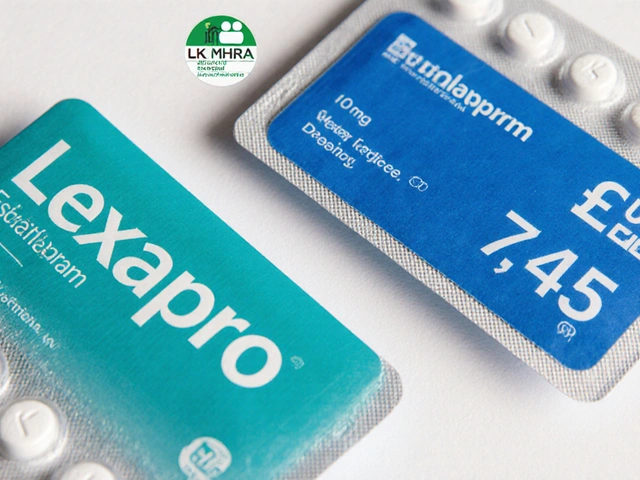Cyproheptadine – Quick Guide to Uses, Dosage, and Safety
Ever wondered why your doctor might prescribe a drug that sounds more like a tongue‑twister than a medication? Cyproheptadine is one of those names, but it’s actually pretty straightforward once you break it down. It’s an old‑school antihistamine that also boosts appetite, making it useful for a few different health issues.
How Cyproheptadine Works and When It’s Used
Cyproheptadine blocks histamine receptors in your body. Histamine is the chemical that causes sneezing, itching, and watery eyes when you have allergies. By stopping histamine, the drug eases those allergy symptoms. Beyond allergies, it has a side effect that many doctors find handy – it can make you feel hungry. That’s why you’ll see it prescribed for kids who struggle to gain weight, for people with conditions like cystic fibrosis, or for anyone who needs a safe appetite stimulant.
Typical reasons to take cyproheptadine include:
- Seasonal or year‑round allergic rhinitis
- Urticaria (hives)
- Appetite loss due to chronic illness or certain medications
- Preventing migraine aura in some patients (off‑label use)
It’s not a first‑line choice for severe allergies, but it’s a solid backup when newer antihistamines cause trouble.
Dosage, Side Effects, and Safety Tips
Adults usually start with 4 mg (one tablet) once or twice a day. Doctors may increase to 8–20 mg per day, split into two doses, depending on why you’re taking it. Kids get a lower dose – typically 0.25 mg per kilogram of body weight, given twice daily. Always follow your prescriber’s instructions; the drug can stay in your system for up to 24 hours.
Common side effects are mild and include:
- Drowsiness or feeling “foggy” – it can make you sleepy, so avoid driving or heavy machinery until you know how it affects you.
- Dry mouth, nose, or throat – sip water, chew sugar‑free gum, or use a saliva substitute if it gets uncomfortable.
- Increased appetite – this is often a benefit, but watch your calorie intake if you’re not trying to gain weight.
Less common but more serious reactions can happen, such as rapid heartbeat, severe dizziness, or signs of an allergic reaction to the medication itself (rash, swelling, trouble breathing). If any of those pop up, call a doctor right away.
Here are a few practical tips to keep you safe:
- Take it with food. A light snack can lessen stomach upset and may reduce drowsiness.
- Don’t mix with alcohol. Both depress the central nervous system, so you’ll feel extra sleepy.
- Watch for interactions. Antidepressants, antipsychotics, and other antihistamines can boost side effects. Tell your doctor about every medicine you’re using.
- Regular check‑ins. If you’re on cyproheptadine for appetite, your doctor may want periodic weight checks to make sure it’s working as intended.
Pregnant or breastfeeding folks should discuss risks with their provider – the drug crosses the placenta and appears in breast milk, so a professional assessment is key.
Bottom line: cyproheptadine is a versatile antihistamine that can also help with appetite loss. Use the dose your doctor recommends, stay aware of drowsiness, and keep an eye on any unusual symptoms. When taken correctly, it’s a handy tool in the allergy and weight‑gain toolbox.






